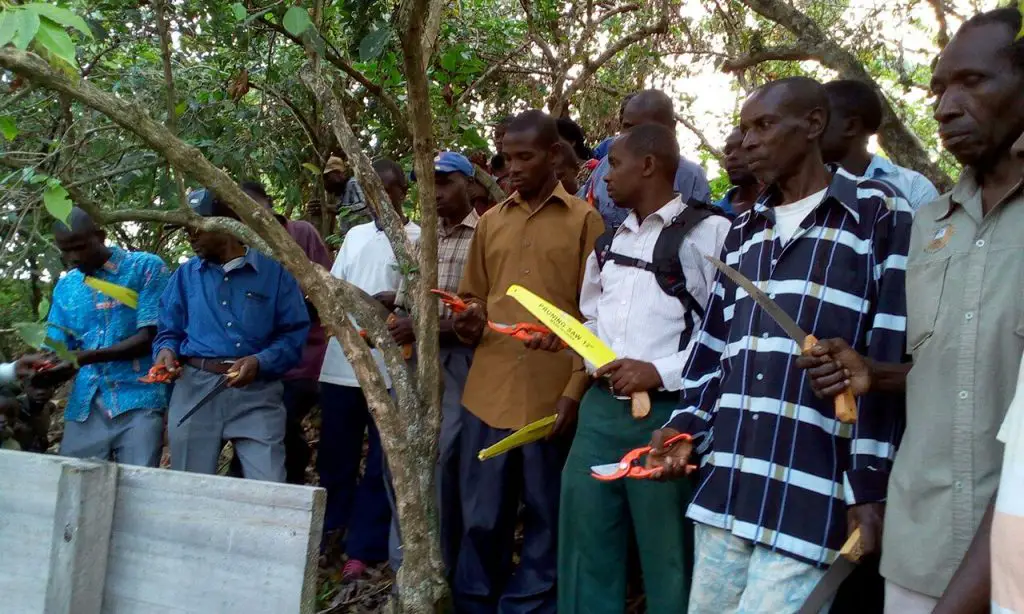Last year, Rwanda beat Brazil and Colombia as “Best of the Best” coffee producer.
This milestone came as the country sought to export at least 24, 500 tonnes of quality coffee in a year.
As part of the country’s National Agricultural Export Development Board (NAEB)’s strategies to produce quantity and quality coffee, Rwanda aims at planting 34,000 new coffee trees by the year 2024.
Social-economic inclusion of women and youth in Rwanda
A boost to hit the export target has come with Nestlé and Sucafina announcing the extension of their partnership for the next three years.
In this partnership, the two companies are focusing particularly on the social-economic inclusion of women and youth in Rwanda.
Sucafina is a “Farm to Roaster” coffee company and it joined forces with Nestlé in 2015 to run a programme called ‘’Coffee by women’’ under the Nescafé Plan.
The announcement on Tuesday said the programme aims at improving the livelihoods and resilience of small-scale coffee producers across Rwanda while ensuring long term sourcing of high-quality coffee.
So far, the programme has reached 5,053 coffee farmers with 37 per cent comprising of women and 24 per cent, youth.
For this second phase, Nestlé and its supplier Sucafina aim at reaching 3,057 women.
Responsibly sourced high-quality coffee in Sweden
Coffee beans produced in Rwanda are roasted and used to manufacture one of Nestlé’s coffee brand, Zoégas, which is popular in Sweden.
“Our consumers ask for responsibly sourced high-quality coffee and the taste profile from Eastern Africa is very popular.
To ensure higher coffee standards in the future, we need the commitment of everyone in the value chain,” said Hans Nilsson, Marketing Manager Zoégas (Nestlé).
He added that by involving women and youth and through education, they do not only secure coffee for the future, but can also make an impact for the coffee growers’ families and communities.
Max Veglio, Managing Director for Rwacof Exports Ltd, Sucafina’s subsidiary in Rwanda, said, “At Sucafina, we operate at every level of the worldwide coffee supply chain. We have been processing and exporting coffee in Rwanda since 1996 and have amassed extensive knowledge of the internal and export markets with a worldwide network of buyers.”
Veglio added, “This second phase of the Nescafé Plan – Coffee by women, follows on the successes of our first phase in the region. This collaboration will have a special emphasis on the inclusion of women and youth which was particularly successful in the initial phase”
The programme – co-funded jointly by Nestlé and Sucafina SA, will be implemented by Kahawatu Foundation.
Gender equality and women empowerment
The programme will target over 8,000 households around five western coffee washing stations (CWS) of Rwacof namely Musasa, Mushonyi, Nyamyumba, Rwinyoni, and Ngororero.
Over 30 per cent of them will be women.
Women play a significant role in coffee farming activities, as well as their critical contribution to families and communities, but they frequently do not have the same opportunities to receive training or to take on leading organizational roles.
The project supports gender equality and women empowerment with a tailored programme to increase the household incomes, strengthen financial management, and develop communication and influencing skills, helping some of them to assume leading community roles.
Coffee is still a major source of livelihood for thousands of Rwandese smallholder farmers and this partnership aims to have a higher inclusion of women and youth, improved economics of coffee farming, improved livelihood and living standards and thus improved household resilience.
The joint project will also contribute significantly to the UN Sustainable Development Goals (SDGs).
